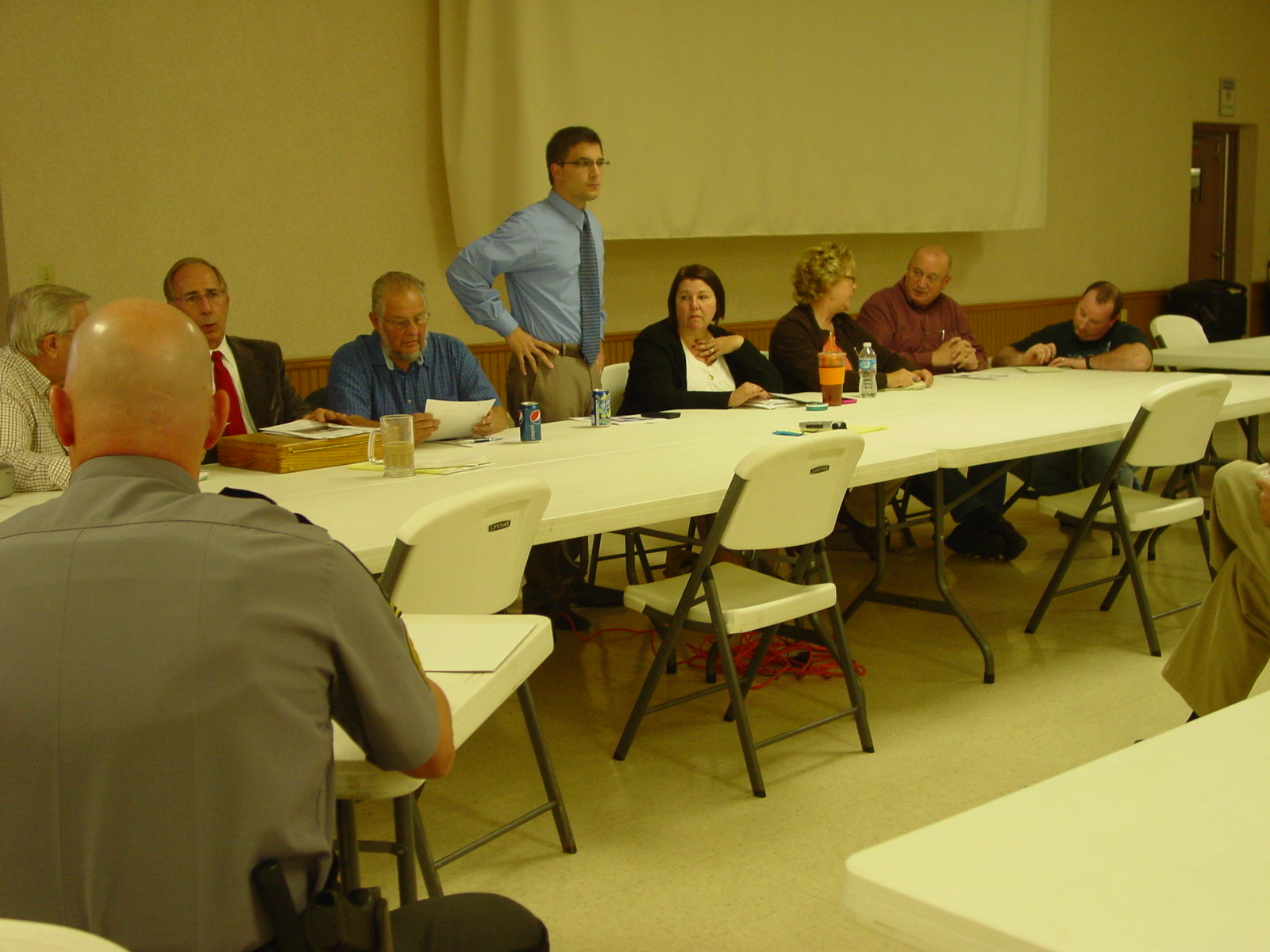
It’s critical that we not rely on memory, on word of mouth for that type of an emergency. Because if it’s four decades from now, we’re going to need to have everything compiled, have this written, memorialized.
–Mayor Dan Knorr, October 18th, 2011
Records of the 1972 flood exist to be sure, but they don’t tell the entire story. There are pictures, maps, lists of names and statistics. But what these records lack is the immediate story, the conversation that takes place daily among friends and neighbors, the conversation that has taken and is still taking place in the streets of Bloomsburg.
Mayor Knorr, the Town Council, Emergency Services, and Public Works all received well-deserved praise at the Open Forum held at the Bloomsburg Firehall on the evening of October 18th. The Bloomsburg Daily, too, commends all of our local officials for their tireless and continuing efforts, helping Bloomsburg recover from this tragedy as well as looking for ways to plan for, or possibly prevent, the next.
But regardless of these good works, there was another feeling in the room last night; one of anger, one of loss, and of pain and desperation. Town residents came looking for practical answers, to be sure, but also to add their voices of frustration. They came to continue the private conversations they have daily in their living rooms, on their porches, and beside their homes which they can no longer enter.
They came wanting to know that their fellow citizens, those to whom they entrusted the care of their local government, had a sense of their loss. Here, the Mayor and the Town Council let their fellow citizens down.
Soon after Mayor Knorr finished his 30 minute presentation, the questioning began. One resident wondered why in this open forum we were reviewing all that information. “Will we just be here doing the same thing again next year?”
“Is all we’re going to do is clean the fairgrounds when people are suffering,” another resident asked.
Each time, the answers of the Mayor and the Town Council were disappointing. They spoke of statistics, future plans, using jacks to raise houses. They answered questions that were not asked. And over those two hours, some members of the Council did not speak at all. We wondered, listening to the Council’s replies, if they heard the questions their neighbors were truly asking. We wondered if they too sensed the feeling in that room.
The responsibility of any elected official is great, of course. They need to remember the practical, be able to plan for the needs of their town. But governmental leadership is also about fostering a sense of community. By speaking only of what was done in the past and of what might be done in the future, the Mayor and the Council lost the chance to address the uncertainty of the community in the present.
Mayor Knorr is right. We do need to have the practical plans and procedures to be both written and widely known. But he is also right that the September Flood needs to be memorialized. More than the practical, there is a community voice that needs to be felt, not only once at a town meeting, but constantly, every day in coffee shops and restaurants, in the emails and pictures we send to our friends, in the online forums and comments that connect us and help forge a wider, more active conversation.
This wide and active community is, in a sense, that memorial Mayor Knorr spoke of. Vibrant, engaged and constant conversation is the lifeblood of any town. Keeping that conversation alive keeps that sense of community alive, helping each of us. Not by memory alone, but through this present and continuing conversation we learn where to go, what to do, and how to respond to each crisis our community faces.



Very well said! I am too emotionally drained and felt like I could not attend. I appreciate the fact that you took the time to attend and that you were able to write what a ton of people are thinking!
You’ve put into words what so many people are thinking. The feeling you get when walking through the flooded neighborhoods and talking to your friends is that these people know they’re on their own. They’re tired and fed up but they keep going day after day, doing what needs to be done. They know there’s only so much their friends and volunteers can do for them. They need help from the government. I want my taxes to go to them, not to Africa, not to Afghanistan, not to Iraq. I want my taxes to go to the Polks, the Jumpers, the Daltons, the Baylors. I want everyone who was flooded to know they’ll be taken care of so they don’t have to worry everyday about how they’re going to rebuild their lives. My heart aches for them. God bless them all.